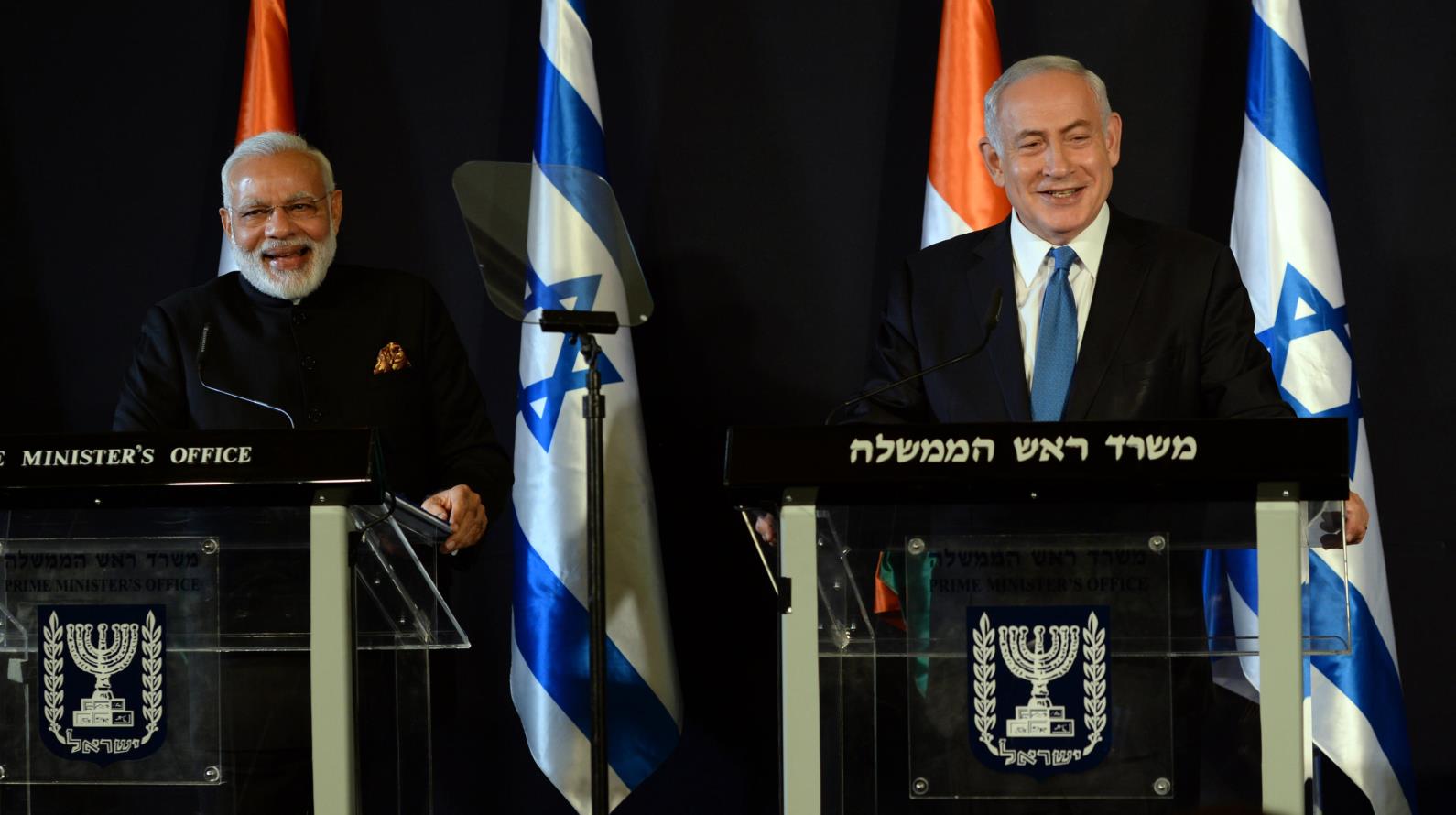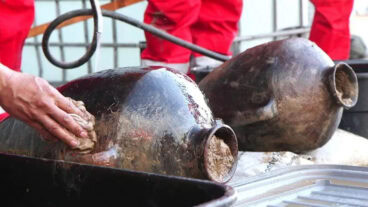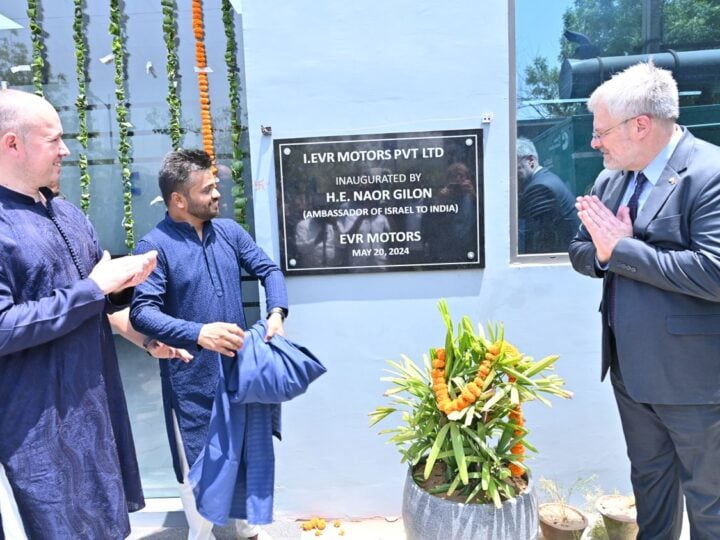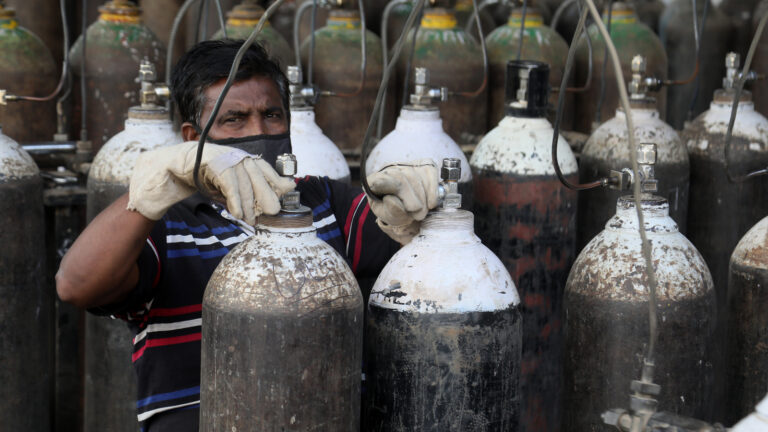Indian Prime Minister Narendra Modi’s historic visit to Israel this week has produced new economic deals and partnerships between Israeli and Indian companies, including seven Memorandum of Understanding agreements to increase cooperation in technological research and development, space, water conservation and agriculture.
“India and Israel are walking hand in hand into the future as partners. India is a growing economic powerhouse with a large market and talent pool. Israel is a world leader in high technology and innovation,” Modi and Israeli Prime Minister Benjamin Netanyahu wrote in a joint editorial this week.
“The combination of India’s and Israel’s human resources and ingenuity will provide more effective and more affordable solutions for us in diverse fields that are priorities for both our governments: agriculture, water, health, environment, education and security.”
Modi’s July 4-6 visit marked the 25th anniversary of the establishment of diplomatic relations between the two countries. It was the first-ever visit by an Indian prime minister to Israel.
One of the highlights was the signing of an MoU for setting up a $40 million India-Israel Industrial Research and Development (R&D) and Technical Innovation Fund. Each country will contribute $20 million to enable joint Indian and Israeli R&D projects that could lead to the development of innovative technologies and products that have potential for commercial application.
“We are of one view that together our scientists and researchers would develop, build and implement mutually beneficial solutions in the field,” said Modi. “We regard thriving two-way trade and investment flows as the bedrock of a strong partnership.”
The two countries signed two agreements to increase cooperation on water conservation and state water utility reform in India. An MoU was signed between Uttar Pradesh Jal Nigam and the Israeli Ministry of National Infrastructure, Energy and Water Resources.
“We agreed that efficiency of water and resource use; water conservation and its purification; productivity increases in agriculture are key areas in deepening our bilateral cooperation,” Modi said.
Modi and Netanyahu attended a demonstration of a GalMobile desalination unit capable of supplying drinking water for 22,000 people per day. They were briefed by the G.A.L. managing director and tasted water that had been desalinated on the spot.
In the agriculture sector, Israel and India agreed to create the India-Israel Development Cooperation – a three-year work program from 2018 to 2020.
The Israel Space Agency and Indian Space Research Organization agreed to cooperate in atomic clocks and continue academic cooperation. The two space agencies also signed MoUs on cooperation in GEO-LEO optical link and electric propulsion for small satellites.
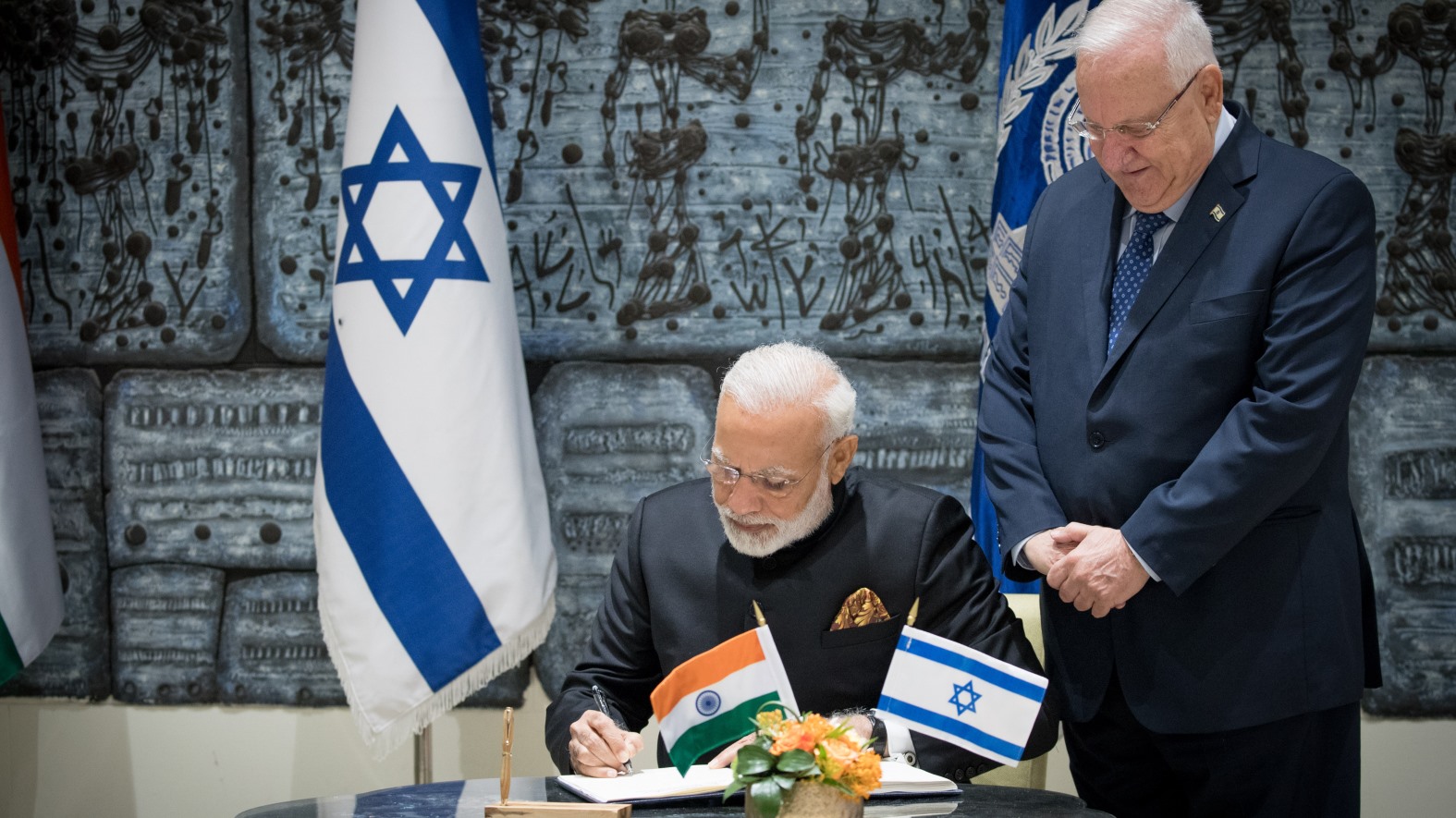
Greater collaboration in startup arena
Modi met with the CEOs of Israeli and Indian companies in the context of the launch of an Israeli-Indian CEO forum to be chaired by Manufacturers Association President Shraga Brosh. Modi and Netanyahu asked the forum to come up with early recommendations to help boost bilateral cooperation in innovation and entrepreneurship and called for greater collaboration in the field of startups.
On July 5, Zebra Medical Vision and Telerad Tech, the technology arm of Teleradiology Solutions, India’s largest teleradiology company, announced a partnership to bring Zebra’s cloud-based deep learning analytics engine to more than 20 countries and 150 hospitals and healthcare organizations.
“Zebra’s ability to produce and deploy AI for radiology is the exact type of added value we hope to bring to help fulfill our vision of impacting patient diagnosis and medical care in India, Asia and Africa,” said Dr. Arjun Kalyanpur, founder and CEO of Teleradiology Solutions and Telerad Tech.
Shachaf Engineering and Mahindra Telephonics signed an MoU to collaborate on the design, development and manufacture of strategic electronics.
“We are keen to bring to the table our in-house expertise as well as technical know-how from TTM Technologies — with whom we have a long term relationship and represent in Israel as well as in India since 2006 — to the current and future design of new generation systems in different segments of activities,” said Zeev Harel, CEO of Shachaf Engineering in Tel Aviv.

According to the Israeli Ministry of Economy and Industry, since the establishment of diplomatic relations between India and Israel in 1992, trade between the countries has grown from $200 million in 1992 to $4.13 billion in 2016.
“The Indian economy is becoming a prime destination for Israeli exports, with its 1.3 billion consumers, led by 300 million citizens in the middle and upper-middle class, with purchasing power equal to the middle class of Western economies,” said Israeli Minister of Economy and Industry Eli Cohen.
“The Israeli Ministry of Economy and Industry – through its Foreign Trade Administration and array of three trade missions in India – helps Israeli exporters open up the Indian market, which undoubtedly holds tremendous economic and trade potential.”
Many Israeli companies have established offices and production facilities in India, among them Teva, Netafim, CheckPoint, Amdocs, Magic Software, Ness Technologies, Mobileye, and HP Indigo as well as Israel Aerospace Industries, Elbit, Verint and others.
A report issued by Accenture and NASSCOM, “Collaborative Innovation: The vehicle driving Indo-Israel prosperity,” estimates that by 2025, up-to $25 billion of revenue potential can be unleashed for businesses in the two countries through cumulative cross-border investment into Indian and Israeli startups.




